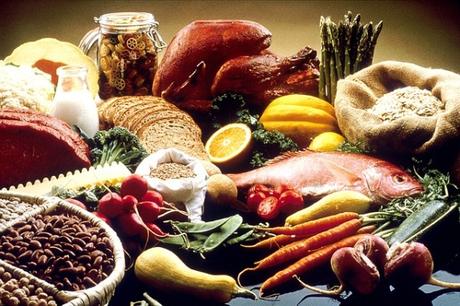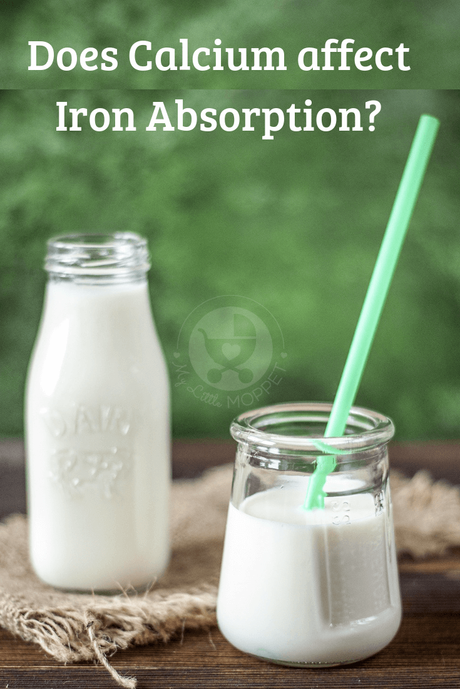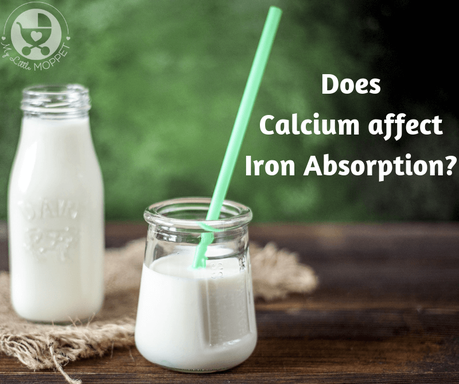February 6, 2019 Leave a Comment
The question “Does Calcium affect iron absorption?’ has been cause for concern for Moms everywhere. Read on to find out the answer to this common question.
Buy Homemade Baby & Toddler Food from a Doctor Mom's KitchenOrganic · FSSAI Certified · NABL Lab certified Buy Sprouted Sathumaavu Health Mix powder for Babies / Homemade Cerelac Dry Fruits Powder for Babies/Toddlers Pancake Mixes for Toddlers
When you’re a Mom, one of the roles you take on is of a nutritionist. You need to learn about what foods are healthy and what are not. You also need to learn about specific nutrients – which ones are essential, where they can be found and what happens during a deficiency. All this is important, since it sets the stage for lifetime of good health for our children.
This huge responsibility is probably the reason that most Moms’ biggest gripe is with their kids’ fussy eating! Nearly 90% of the queries I get on a daily basis are related to nutrition and recipes, dealing with topics from weaning to fussy eating. A query that has seen a rise in recent times is this: “Does Calcium affect Iron absorption?” Since so many Moms had this question, I decided to tackle it in this blog post.

Calcium and Iron – Essential Nutrients for Growing Kids
Along with protein, calcium and iron are also extremely important nutrients for growing children.
Calcium is important for proper bone and muscle development – not just in childhood but throughout life. Adequate calcium consumption during the growing years ensures that kids’ bones attain peak bone mass which will help them resist osteoporosis later.
Calcium is available in a wide variety of foods, including dairy as well as non-dairy foods like beans, broccoli and spinach.

Iron is another nutrient that’s crucial for growth and overall physical and mental health. With sufficient iron, the blood is able to transport oxygen properly to the cells, enabling them to function well. Full term babies are generally born with sufficient iron, but preterm and low-weight babies are usually lacking.
Iron-rich foods have two types of iron:
- Heme Iron – present in meat, seafood, poultry
- Non Heme Iron – present in plant-based foods, iron-fortified foods, as well as in meat, seafood and poultry
A deficiency of calcium in childhood can lead to weak bones and muscles. Extreme deficiency can cause rickets, soft bones, bow legs and stunted growth.
A lack of enough iron during early childhood can have long lasting and irreversible effects, like poor concentration and general weakness.
Coming to our question of the day, the conflict arises because of some reports that consuming calcium-rich foods or supplements along with iron-rich food or supplements can hinder the absorption of iron. Since both these nutrients are crucial for young children, it is understandable that this is cause for concern.
Does Calcium affect Iron Absorption?

Here’s the answer – Yes, and No.
Confused? Here’s the explanation.
It is true that having calcium and iron together shows a decreased absorption of iron, particularly non-heme iron. This is a fact that has been indicated by several studies and the results are the same whether the calcium is from food or supplements.
However, these studies are all short-term or ‘single-meal’ studies, which means they consider the iron absorption levels based on a single meal consumed by the subjects in the study. On the other hand, longer term studies find that calcium does not really have a significant effect on the way iron is absorbed by the body. This includes dairy as well as other sources of calcium.
Why does this happen?
So basically, the phenomenon of calcium preventing iron absorption is only a short term effect, and is not seen over a long term. Experts think that this ‘inhibitory effect’ may be a kind of compensatory mechanism of the human body, which gradually adapts over time.
Besides, there are several other factors that can affect iron absorption, and the role of calcium may not be as strong as it is considered to be. There is also the theory that single-meal studies may be overestimating the effect of Calcium on iron absorption. When compared with a long term diet, results showed an 80% increase in iron absorption.
At the end of the day, nearly all nutritionists and experts agree that Calcium does not have any long term effect on iron absorption. Any preventive effect is only temporary, and as long as you maintain a nutritious, balanced diet for your child on a long term basis, they will get all the nutrients they require to grow strong and healthy.

References:
U.S. National Library of Medicine
The American Journal of Clinical Nutrition
National Institute of Health, USA
SharePinWhatsApp0 Shares